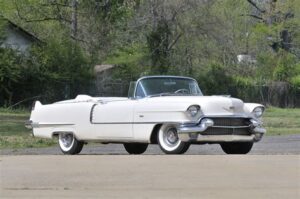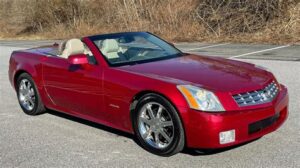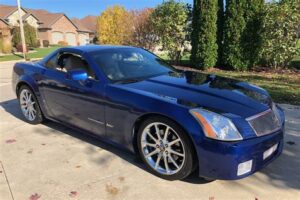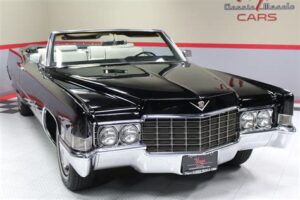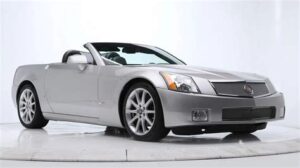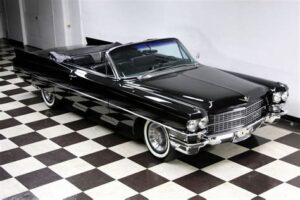When your Cadillac converter fails, it can have a cascading effect on your vehicle’s performance, efficiency, and safety. This crucial component of your car’s exhaust system is designed to reduce harmful emissions and optimize fuel use. Understanding the symptoms of a failing Cadillac converter is essential for any car owner, as timely detection can save you from costly repairs and unwarranted downtime. In this article, we will delve into the warning signs that indicate your Cadillac converter may be going out, the impact on engine performance and fuel efficiency, common causes of failure, and available repair options. Stay informed to ensure your vehicle runs smoothly and meets environmental standards, keeping you safe on the road while also protecting our planet.
Understanding The Symptoms Of A Failing Cadillac Converter
Recognizing the signs of a failing Cadillac converter is crucial for maintaining your vehicle’s performance and longevity. A faulty catalytic converter can lead to a range of problems, so understanding these symptoms can help you take timely action. Here are some common indicators that your Cadillac converter may be going out:
| Symptom | Description |
|---|---|
| Check Engine Light | If your vehicle’s check engine light illuminates on the dashboard, it could indicate a problem with the catalytic converter. This warning should not be ignored. |
| Decreased Engine Performance | You may experience sluggish acceleration or less power when climbing hills due to reduced exhaust flow and increased back pressure. |
| Unusual Noises | A failing catalytic converter might produce a rattling or hissing sound, particularly noticeable when the vehicle is idling. |
| Exhaust Odor | A faulty catalytic converter can lead to a strong smell of sulfur or rotten eggs emanating from the exhaust, indicating that the converter is not processing exhaust gases properly. |
| High Fuel Consumption | If your vehicle is consuming fuel at an alarming rate, a failing converter may be the cause, leading to decreased fuel efficiency. |
If you notice one or more of these symptoms in your vehicle, it’s essential to address the issue promptly to avoid further complications. Ignoring these warning signs can lead to additional damage and costly repairs, creating a scenario of what happens when you delay maintenance.
What Happens To Engine Performance When The Cadillac Converter Fails
When your Cadillac converter fails, the impact on engine performance can be significant. One of the primary functions of the converter is to facilitate the conversion of harmful gases produced during combustion into less harmful emissions. Therefore, a malfunctioning Cadillac converter can create a chain reaction of issues affecting engine performance.
Initially, you may notice a decline in power output. The engine may struggle to accelerate smoothly, feeling sluggish or unresponsive, especially during rapid acceleration. This is often due to reduced exhaust flow, causing backpressure that makes it difficult for the engine to expel exhaust gases efficiently.
Additionally, you might experience engine stalling or hesitation. The improper exhaust flow can lead to an imbalanced air-fuel mixture, which affects combustion efficiency. As a result, your vehicle may stall at low speeds or when shifting gears, making it challenging to maintain control, especially in stop-and-go traffic.
Another crucial aspect to consider is the abnormal engine noises. If your Cadillac converter is failing, you may hear loud rumbling or hissing sounds from the exhaust system, indicating that the exhaust gases are not being processed correctly.
Furthermore, what happens next is typically a saga of warning lights illuminating on your dashboard. The check engine light will often trigger due to the failure of the Cadillac converter, alerting you to the emerging issue that requires immediate attention.
Overall, neglecting a failing Cadillac converter can lead to more severe engine issues, including complete engine failure. It is essential to address any performance changes as soon as they are noticed to avoid expensive repairs down the line.
Common Causes That Lead To A Cadillac Converter Going Out
The Cadillac converter plays a crucial role in reducing harmful emissions from your vehicle, but several factors can lead to its failure. Understanding these common causes can help drivers take preventive measures and maintain optimal engine performance. Here are some reasons why your Cadillac converter might go out:
- Excessive Heat: Overheating can lead to the melting of the catalyst material inside the converter. This can occur due to engine misfires or running the engine too lean.
- Contamination: The converter can become clogged or damaged due to the presence of oil, coolant, or other fluids entering the exhaust system, often due to engine problems.
- Physical Damage: External impacts from road debris or poor installation can result in physical damage, causing the Cadillac converter to fail.
- Aging: Like many vehicle components, the Cadillac converter has a finite lifespan. Over time, the internal structure can break down, leading to reduced efficiency.
- Faulty Oxygen Sensors: If oxygen sensors malfunction, they can misread exhaust gases and cause the engine to run improperly, putting excess strain on the converter.
By being aware of these factors, drivers can take steps to mitigate risks and maintain their vehicles more effectively. Regular check-ups and prompt attention to symptoms can prevent catastrophic failures, leading to both safety and financial benefits in the long run.
The Impact On Fuel Efficiency After Cadillac Converter Failure
When your Cadillac converter fails, one of the most significant consequences is its impact on fuel efficiency. The Cadillac converter plays a crucial role in the exhaust system by converting harmful gases into less harmful emissions. Without a properly functioning converter, this process is compromised, leading to several effects on fuel consumption.
First, a failing or clogged Cadillac converter creates back pressure in the exhaust system. This back pressure forces the engine to work harder to expel exhaust gasses, which can cause the engine to burn more fuel than necessary. As a result, you may notice a decrease in fuel efficiency, making your vehicle consume more gas.
Additionally, what happens when the Cadillac converter is not operating correctly often involves incomplete combustion of fuel. This inefficiency can lead to a richer fuel mixture, which results in further unnecessary fuel consumption. Over time, this can manifest as noticeable drops in miles per gallon (MPG), significantly increasing your fuel expenses.
Moreover, the overall performance of the engine may decline, leading to more frequent stops at the gas station. If you experience any symptoms of a failing Cadillac converter, addressing the issue promptly can help mitigate excessive fuel consumption and restore your vehicle’s efficiency.
What Happens Next: Repair Options For A Faulty Cadillac Converter
When your Cadillac converter fails, it’s essential to understand the repair options available to you. The implications of a malfunctioning converter can greatly affect your vehicle’s performance, emissions, and fuel efficiency. Here are some of the repair routes you can consider:
- Replacement: One of the most common and effective options is to replace the faulty Cadillac converter with a new one. This ensures that your vehicle complies with emissions standards and restores optimal performance.
- Repair: In some cases, you may have the option to repair the Cadillac converter rather than replace it entirely. This depends on the extent of the damage and the specific issues at hand.
- Cleaning: If the converter is partially clogged, a professional cleaning service can sometimes restore its efficiency. However, this is generally a temporary fix and may not be suitable for severely damaged converters.
- Aftermarket Options: If budget is a concern, you might consider aftermarket converters. However, ensure they meet local emission regulations, as using non-compliant parts can lead to further issues.
Before proceeding with any repair options, it’s crucial to consult with a professional mechanic who can diagnose the situation accurately. Addressing a failed Cadillac converter promptly not only improves performance but also enhances fuel efficiency and helps you avoid costly future repairs. Remember, understanding what happens next is key to making informed decisions about your vehicle’s maintenance.
Frequently Asked Questions
What is a catalytic converter?
A catalytic converter is an essential component of a vehicle’s exhaust system that helps reduce harmful emissions by converting toxic gases into less harmful substances.
What are the signs that my catalytic converter is failing?
Common signs of a failing catalytic converter include a check engine light, poor acceleration, a strange smell, or a decrease in fuel efficiency.
How does a failing catalytic converter affect vehicle performance?
A failing catalytic converter can lead to reduced engine power, increased exhaust emissions, and poor fuel economy, making the vehicle sluggish and harder to drive.
Can I drive my car with a bad catalytic converter?
While it’s technically possible to drive with a bad catalytic converter, it is not advisable, as it can cause more damage to other engine components and may lead to costly repairs.
What causes a catalytic converter to fail?
Catalytic converters can fail due to various reasons, including overheating, contamination from oil or coolant leaks, or physical damage from road debris.
How much does it cost to replace a catalytic converter?
The cost to replace a catalytic converter can vary widely depending on the make and model of the vehicle, but typically ranges from $1,000 to $3,000, including parts and labor.
How can I prevent my catalytic converter from going bad?
To prevent issues with your catalytic converter, maintain your vehicle regularly, address any engine problems promptly, and avoid running on low fuel to prevent debris from clogging the converter.
